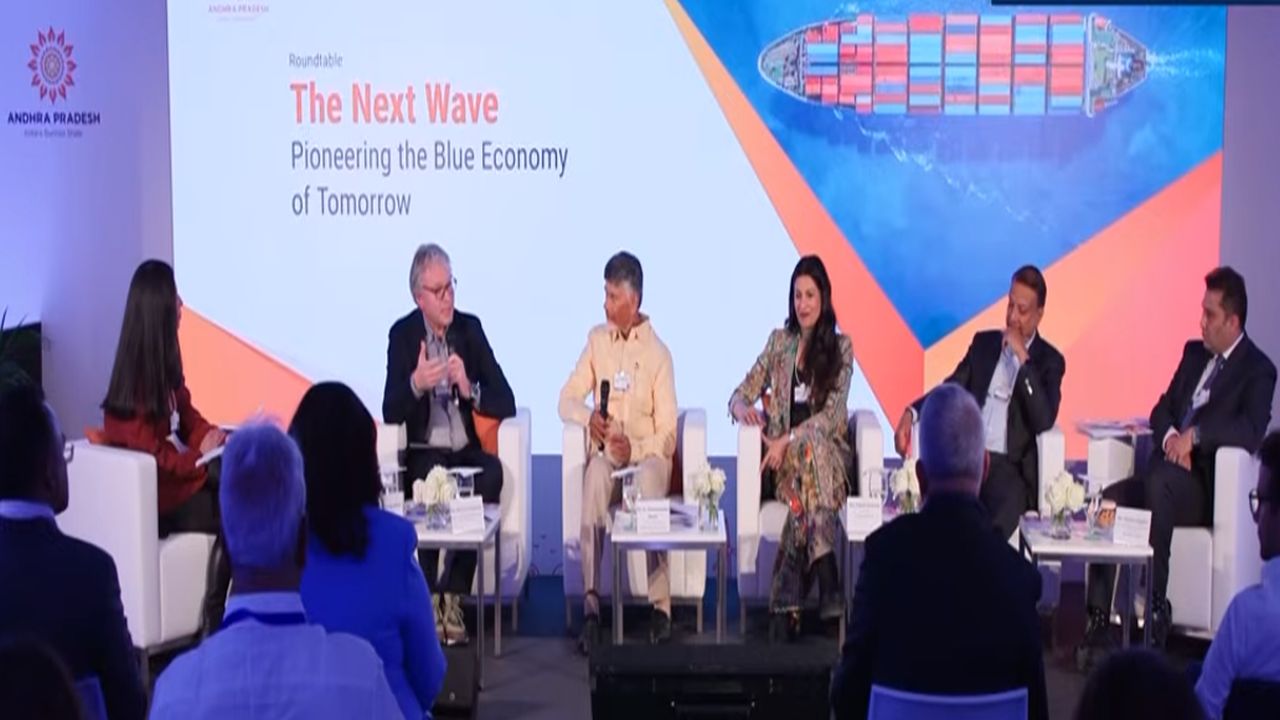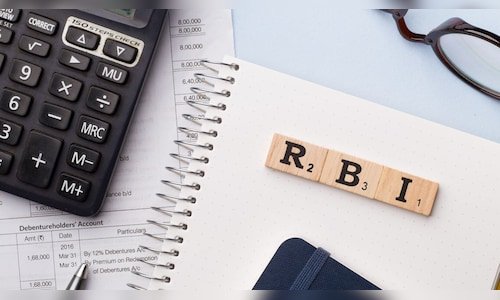
Speaking with CNBC-TV18 the World Economic Forum in Davos 2025 on how Andhra Pradesh can leverage its potential to emerge as a sustainable development hub, Dooren highlighted the importance of collaboration between government and private enterprises to address the long-term challenges of climate change and infrastructure development.
“Ports are not just standalone entities; they are nodes in a broader network, connected to the hinterland and global trade routes,” Dooren explained. Using the Port of Rotterdam as an example, he shared the port’s strategy for sustainable development. “We aim to deliver goods cleanly, produce them sustainably, and build an efficient, green energy system,” he added, noting that these goals are underpinned by over 70 ongoing projects. PPPs, he stressed, are integral to mitigating the risks associated with long-term infrastructure investments.
N Chandrababu Naidu, Chief Minister of Andhra Pradesh, echoed Dooren’s sentiments, pointing out that Andhra Pradesh’s unique geographical and economic advantages make it a natural hub for ocean economy initiatives. The state boasts the third-largest coastline in India, six operational ports, and four more greenfield ports set to become operational within the next year. Naidu emphasised the potential for leveraging this extensive coastline to enhance exports and promote green energy projects.
Tushar Singhvi, representing Crescent Enterprises, praised Andhra Pradesh’s strategic initiatives and its focus on becoming a global export hub. Singhvi underscored the opportunities presented by the East Coast, which handles only 28% of India’s container traffic despite being home to half the country’s population. This, he said, represents a massive untapped potential.
Below are the excerpts of the discussion.
Q: The focus on sustainable development, green energy, the focus on developing Andhra Pradesh as an export hub. What will you focus on? What will you prioritise? And more importantly, what is the ask of industry?
Naidu: 2025 World Economic Forum is centering around green energy, green hydrogen, logistics and deep technology in all walks of life.
Ocean economy is the biggest advantage for Andhra Pradesh, starting from tourism and sea cargo and also now we are focusing more on petrochemical complexes.
We need more and more ports for exports and this is where we are having advantage of 1,000 kilometers where we want to leverage ocean economy.
In green energy, we are planning nearly ₹10 lakh crores investment immediately, two projects have already started. Both the projects have port-based exports, either Kakinada Port or Visakhapatnam Port.
Also, there is unexploited resources in the sea and we have to work in that direction. We are studying with all our friends, their ideas and everything. Ultimately, that is the biggest exercise I want to do.
Employment opportunities in blue economy- there are nearly 40 million jobs. The ocean food sector employment is nearly 237 million people globally. Coastal and maritime ecosystem contribute nearly $11.5 billion, maritime transport, 80-90% is only based on that from India to anywhere, global transportation, everything.
Even India’s blue economy contributes 4% to the GDP. There is so much of unexplored wealth in the ocean economy that government of India has introduced some programs, and if we can use all these things, then we will have a better advantage.
Andhra Pradesh has the third largest coastline in India, six operational ports, four green field ports will be available in another one year’s time. Cargo handling capacity as on today is 321 mmtpa. In another one or two years it will go to 431 mmtpa, this is the area where huge opportunities are available for us. Even ship building activity is a big activity.
Q: With a focus on sustainability, what would you say are the enablers that one needs to focus on in your experience, that perhaps the state of Andhra Pradesh can learn from as well?
Dooren: Ports are always nodes in a network. It’s not just a port. They are connected with the hinterland, with exports and so on. And if I then first maybe elaborate a bit on the position of Rotterdam today, Rotterdam is a hub for Europe. And I won’t go into all kinds of details but for instance, one third of all energy that’s used in Germany passes through Rotterdam.
Now, if it comes to how do you address the challenges that we have around climate change, sustainable development, in the future, we would like to remain as important as we are today for North Western Europe. And the difficulty with ports is that all kinds of investments really take a long time. It’s infrastructure investment with an horizon of 20-40 years. So, what we did is, really focus on what we want to be in the future. And we then decided that we want to be the port that delivers your goods in a clean way, that we produce it in a clean way, and that we produce clean goods. So those three elements are key of our strategy, and we translated that into an approach where we focus on infrastructure development for today and to raise efficiency today, the building of an energy system that is green and the building of a industry that’s sustainable and focus on sustainable transport. And in all elements, we have now over 70 projects running. And one of the key elements, I think, is, and maybe that also relates to your development, is that it’s nearly always public private partnership, because public enterprises or private enterprises, they have different ways in how to address and mitigate risks, and that’s key for these kinds of developments.
Q: In your experience of doing ports elsewhere, what do you believe the focus areas need to be?
Singhvi: So we’re a UAE diversified group into upstream oil and gas, sports and logistics, power, EPC, and also invest in private equity and venture capital. We’ve been operating ports for the last 50 years. We built the first container terminal in the Middle East. So, our port subsidiary, operates across the Middle East, in the UAE, in Saudi Arabia, in Iraq, and also the US. We manage over 6 million TUs, and have logistic subsidiary that provides end to end logistic services, including logistic cities, inland container depots (ICDs) and the whole solution.
I think if you take a step back from our perspective, what’s exciting is the growing bilateral trade between India and the region. With the signing of the Comprehensive Economic Partnership Alliance SIPA in 2022 bilateral trade has grown exponentially. There was a target of $100 billion in five years. And that’s expected to be exceeded well before time. I think Andhra Pradesh in particular provides a great opportunity because of the strategic location, the leadership, vision of N Chandrababu Naidu and the initiatives like the blue economy. If you look at it, the West Coast handles about 72% of container traffic in India, the east coast, only 28%. So that itself presents a huge opportunity, because in contrast, the population split is 50-50, so the East Coast is less congested and presents a great opportunity. And we’ve been learning more about Andhra Pradesh’s plans on the port development side, and we are keen to explore.
Q: Is it an opportunity that you’re actively considering today?
Singhvi: Absolutely, I’ve spent time with the chief minister’s team and the Andhra Pradesh team, and we’d love to explore it further.
Watch accompanying video for entire discussion.


